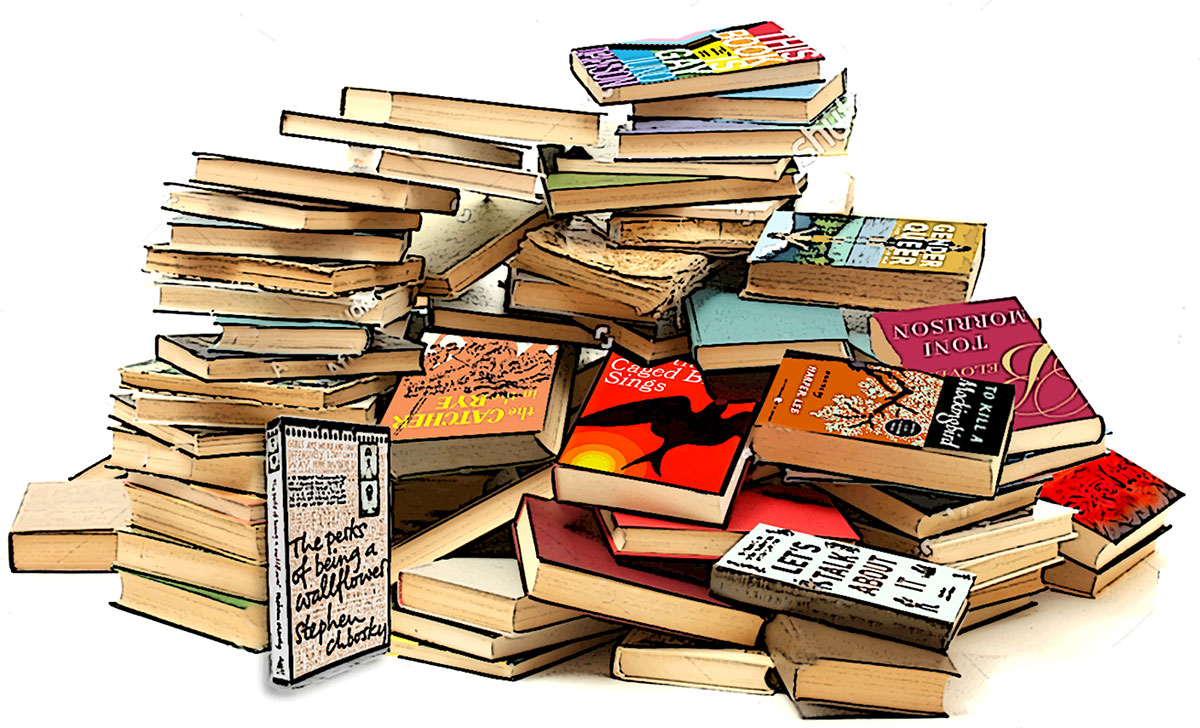Banning books does more harm than good

Legendary science fiction writer Isaac Asimov wrote, “Any book worth banning is a book worth reading.” Judging by the number of book bans passed by state legislatures lately, there is an ever-increasing number of books worth reading.
Sept. 22-28 is designated as Banned Books Week. The annual event was launched in 1982 to highlight the value of free and open access to information. The week brings together the book community — librarians, educators, authors, publishers, booksellers, and readers of all types — in shared support of the freedom to seek and to express ideas, according to bannedbooksweek.org.
The American Library Association reported there were a total of 4,240 book titles challenged in 2023, a 65% increase from 2022 and a 128% increase from 2021. With the increase in book banning over the years, the future of education in schools and public libraries is bleak.
The act of banning books goes as far back as 1637, with the novel “New English Cannan.” The Puritan government banned it due to its critique of Puritan rules and positions of power. Ever since then, books with strong themes have been challenged or banned.
The free speech advocacy group, PEN America, found 30% of book titles challenged in schools included characters of color, or discussed race and racism, with another 30% featuring LGBTQ+ characters or themes. Half of these contained abuse, physical violence or sexual experiences between characters.
Some of the most popular banned or challenged books include “To Kill A Mockingbird” by Harper Lee, “1984” by George Orwell, “Gender Queer: A Memoir” by Maia Kobabe and “I Know Why The Caged Bird Sings” by Maya Angelou.
Nearly two-thirds of educators said book banning has a negative effect on teaching, according to firstbook.org, especially in schools in low-income communities which do not have many resources. Additionally, one of their surveys said 72% of the participants found students were less engaged in reading, with a third of educators reporting a decrease in critical thinking. However, when banned books were given as a choice, 78% of participants reported students were reading more often.
Banning books for having sexual content or graphic depictions of violence is one thing. But when nearly half of the banned books in the U.S. contain Black, Indigenous, and People of Color (BIPOC) or LGBTQ+ characters and themes, it can lead into dangerous territory. People who fall under either one of these categories will not be able to see themselves represented in the books they read. In addition, people who do not fall into one of these groups will not get the chance to open their minds to an experience that isn’t theirs.
The organization First Book Research and Insights conducted a Diverse Books Impact Study in September 2023. Over the course of six months, teachers were given a budget to add books with diverse characters, LGBTQ+ and bilingual titles to their libraries and classrooms. The educators saw reading scores were 3% higher than the national average, with the collective classroom reading time increasing to 4 hours a week. These books aren’t “ruining the children’s minds,” but rather the opposite.
To quote Atticus Finch, a character from “To Kill a Mockingbird,” one of the most banned books in the country, “You never really understand a person until you consider things from his point of view, until you climb into his skin and walk around in it.” Why shouldn’t the same thing apply here?
When it comes to books being censored in schools and in public libraries, the people advocating the ban aren’t just trying to protect their children from inappropriate content. They’re also using the power they have to hate on anyone that isn’t “like them.”
We are on the edge of the point of no return. Things have not quite gone too far, but we are perilously close to the scenarios of “Fahrenheit 451” or “1984,” where independent thought is punished. Book lovers all over will have to pray school and public libraries are not wiped clean.
